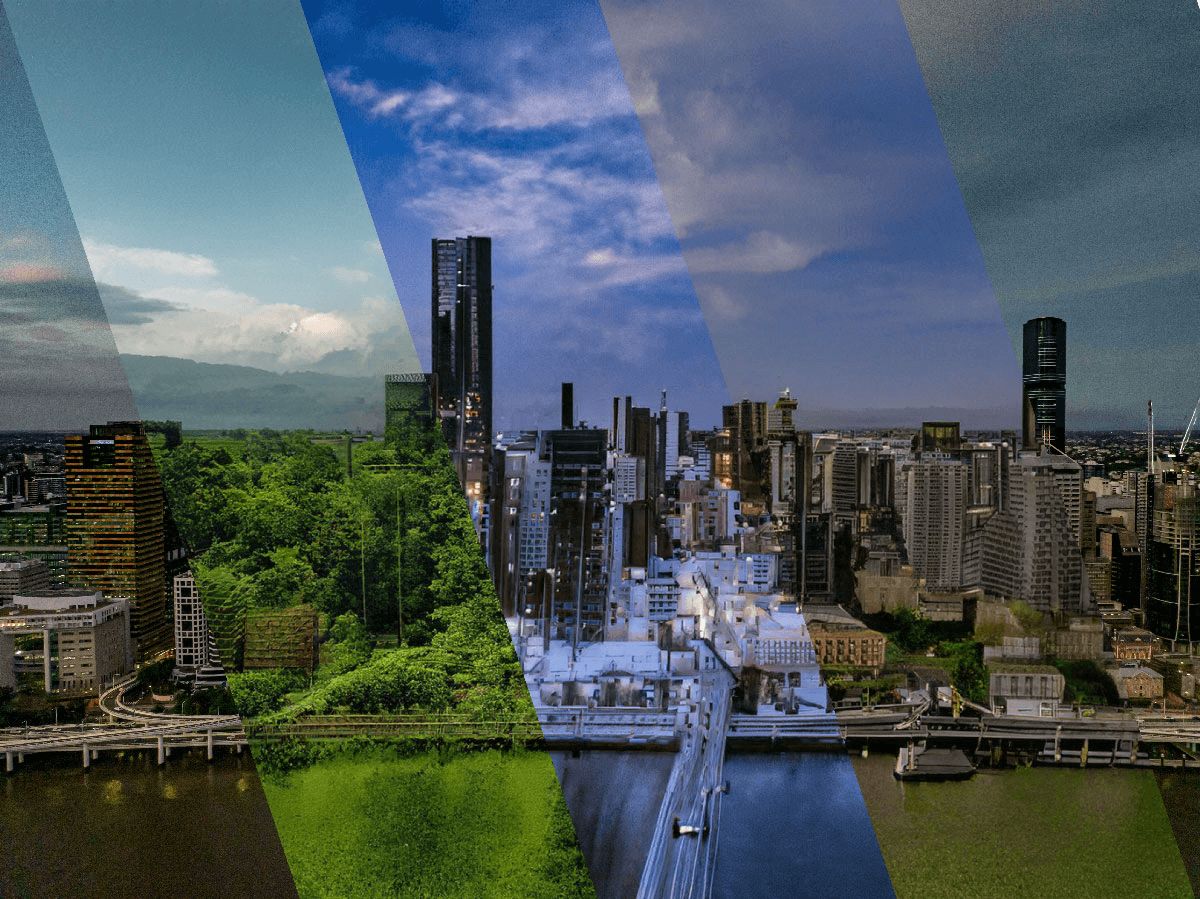How Brisbane seasons affect weddings
- 22 Jun, 2025

Planning a wedding in Brisbane? Here’s what to expect each month of the year when it comes to weather, local events, and how busy venues might be. Queensland’s capital is lucky to have a warm, subtropical climate, but there are seasonal quirks worth knowing.
January
Hot, Humid & Holiday Hangovers
- Weather: High heat and high humidity. Average highs around 30–32°C. Afternoon storms are common.
- Rain risk: High – one of the wettest months of the year.
- Pros: Beautiful greenery from the rain, quieter wedding industry after NYE.
- Cons: Storm risk, heat stress, guests might be away or burnt out from the holidays.
- Events: Australia Day long weekend. School holidays (venues and accommodation can be busy).
✅ Best for: Lush garden weddings (if you plan for wet weather).
❌ Avoid if: You or your guests don’t cope well in humid weather.
February
Sticky Romance Season
- Weather: Still hot and humid. Storms continue.
- Rain risk: Very high. February is statistically Brisbane’s wettest month.
- Pros: Off-peak pricing from some vendors. Valentine’s Day romance.
- Cons: High chance of rain, potential for cyclonic weather across QLD.
- Events: Brisbane Chinese Lunar New Year celebrations.
✅ Best for: Indoor venues with good air-con and wet-weather backup.
❌ Avoid if: You want an outdoor ceremony with zero risk.
March
A Mix of Everything
- Weather: Summer starts to ease. Still warm but less stifling.
- Rain risk: Still high but easing. Watch for afternoon showers.
- Pros: Transitional month – not too hot, not too cold.
- Cons: Unpredictable – could be glorious or soggy.
- Events: Brisbane Comedy Festival, World Science Festival.
✅ Best for: Couples wanting a late-summer vibe without peak heat.
❌ Avoid if: You hate not knowing what the weather will do.
April – Mild Days, Golden Light
- Weather: One of the best months in Brisbane. Warm days, cooler nights.
- Rain risk: Low to moderate. Generally clear.
- Pros: Autumn colours, golden-hour light, lovely temps for suits and dresses.
- Cons: Easter holidays can make things more expensive or booked out.
- Events: Easter, Anzac Day, school holidays.
✅ Best for: Outdoor ceremonies, sunset photos, low-stress planning.
❌ Avoid if: You want off-peak pricing.
May
Peak Wedding Season Starts
- Weather: Dry, sunny, pleasant – average highs around 24°C.
- Rain risk: Low. Crisp evenings.
- Pros: Arguably the best weather for weddings in Brisbane.
- Cons: Popular month – book venues and vendors early.
- Events: Brisbane Street Art Festival, Buddha Birth Day Festival.
✅ Best for: Everything – seriously, May is magic.
❌ Avoid if: You’re planning late – it books out fast.
June
Winter, Brisbane-Style
- Weather: Dry, cool, and often crystal clear. Highs around 21°C.
- Rain risk: Very low.
- Pros: Cosy vibes, perfect for suits, ideal for midday ceremonies.
- Cons: Early sunsets (around 5pm), cooler nights may need heating.
- Events: Brisbane Winter Racing Carnival, Scenic Rim Eat Local Month.
✅ Best for: Rustic venues, long-sleeve dresses, photo-perfect skies.
❌ Avoid if: You want a late evening outdoor event.
July
Clear Skies, Chilly Nights
- Weather: Coldest month, but still mild by global standards.
- Rain risk: Very low.
- Pros: Stunning clear days, hardly any rain.
- Cons: Can feel too cold if you’re expecting warmth – especially inland or up in the hills.
- Events: NAIDOC Week, Queensland Music Festival (some years), school holidays.
✅ Best for: Morning weddings, elopements, destination guests escaping real winter.
❌ Avoid if: You want tropical vibes and barefoot evenings.
August
Dry, Bright, and Busy
- Weather: Warming up, still dry.
- Rain risk: Minimal.
- Pros: Sunshine without the sweat, blue skies, low humidity.
- Cons: Wind can be an issue (especially by the river or coast).
- Events: Ekka (Brisbane Show) – big draw for locals, public holiday impacts bookings.
✅ Best for: City venues, outdoor receptions, winter escape weddings.
❌ Avoid if: You don’t want your wedding weekend clashing with Ekka crowds or fireworks.
September
Spring Awakens
- Weather: Warmer, breezy, blooming gardens.
- Rain risk: Low to moderate. Heat and humidity start to return.
- Pros: Jacarandas starting to bloom, longer daylight.
- Cons: Fluctuating weather – could feel like summer or still like winter.
- Events: Brisbane Festival, Riverfire.
✅ Best for: Garden weddings, riverside receptions, festival-loving couples.
❌ Avoid if: You don’t want to compete with Riverfire crowds.
October
Jacaranda Season
- Weather: Warmer again – high 20s.
- Rain risk: Rising.
- Pros: Purple trees, evening light, spring vibes.
- Cons: Occasional storms return, humidity creeps back in.
- Events: Jacaranda season, Brisbane Open House, school term.
✅ Best for: Photos under purple blooms, sunset ceremonies.
❌ Avoid if: You’re relying on cool weather or have storm anxiety.
November
Steamy but Stunning
- Weather: Hot, humid, early storms.
- Rain risk: High – similar to Feb, with dramatic late-day rain possible.
- Pros: Summer lovers will enjoy the heat. Bright, lush locations.
- Cons: Can be sweaty and unpredictable.
- Events: School formals, university events, end-of-year rush starts.
✅ Best for: Laid-back elopements or early ceremonies.
❌ Avoid if: You want a stress-free outdoor reception.
December
Festive, Frantic & Fiery
- Weather: Peak summer. Hot, muggy, storm-prone.
- Rain risk: High.
- Pros: Festive vibes, pre-Christmas gatherings.
- Cons: Guests may be travelling or financially tapped out, vendors in wind-down mode.
- Events: Christmas parties, holiday shutdowns, New Year prep.
✅ Best for: Small weddings or destination elopements.
❌ Avoid if: You’re trying to plan a big event on short notice or budget.
Brisbane is a year-round wedding city, but knowing what each month brings helps you plan better. If weather matters most, aim for April to August. If budget is your main concern, look to the off-peak months like January, February, and June. And no matter the season, always have a wet-weather plan — this is Queensland, after all.